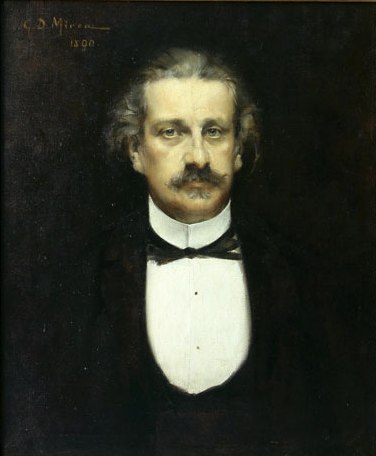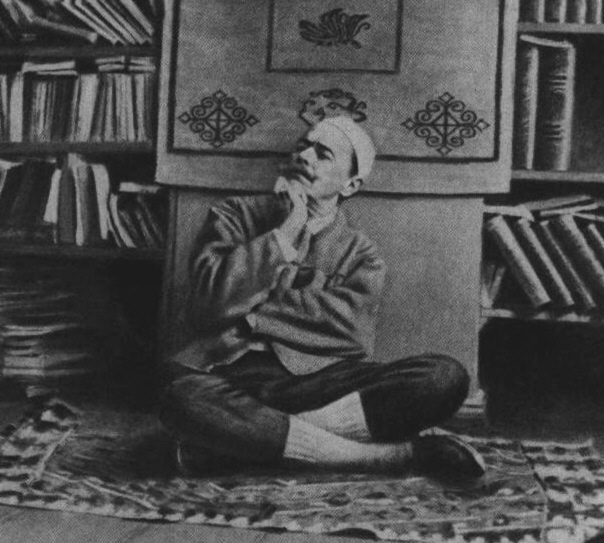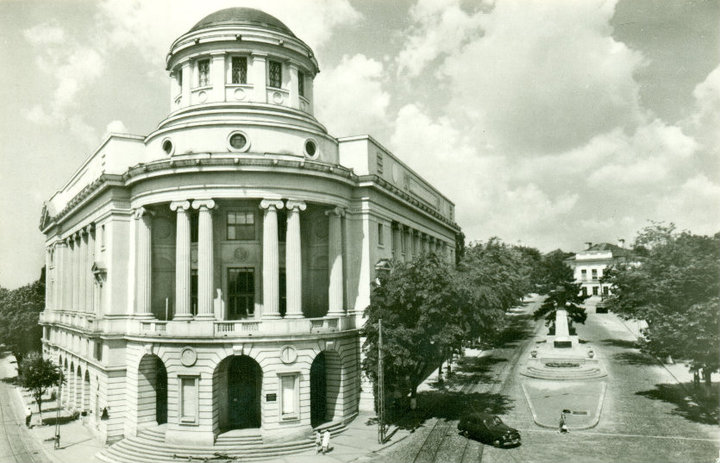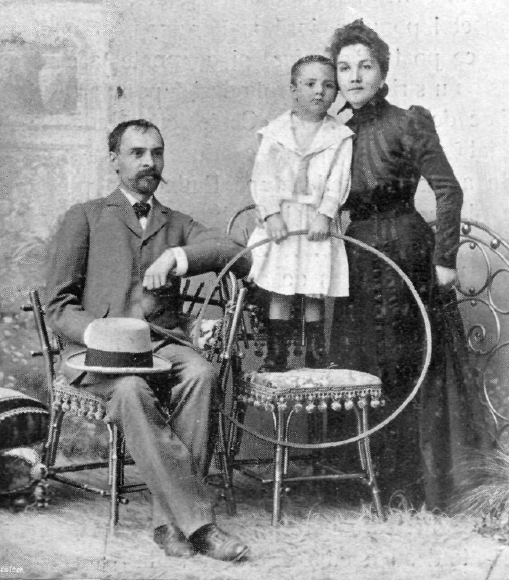|
List Of Romanian Writers
This is a list of Romanian writers. Literature Old literature *Neagoe Basarab (c. 1459–1521) *Dosoftei (1624–1693) *Miron Costin (1633–1691) *Grigore Ureche (1590–1647) *Ion Neculce (1672–1744) * Antim Ivireanul (1650–1717) * Constantin Cantacuzino (1639–1716) *Dimitrie Cantemir (1673–1723) *Gheorghe Asachi (1788–1869) 19th century Romantic writers *Dinicu Golescu (1777–1830) *Anton Pann (1790s–1854) *Ion Heliade-Rădulescu (1802–1872) *Grigore Alexandrescu (1810–1885) *Constantin Negruzzi (1808–1868) *Ion Ghica (1817–1897) *Nicolae Filimon (1819–1865) *Alexandru Odobescu (1834–1895) *Bogdan Petriceicu-Hasdeu (1838–1907) *Petre Ispirescu (1830–1887) *Alexandru Odobescu (1834–1895) *Alecu Russo (1819–1859) *Cezar Bolliac (1813–1881) * Barbu Delavrancea (1858–1918) *Octavian Goga (1881–1938) *Vasile Alecsandri (1821–1890) *Alexandru Macedonski (1854–1920) *George Coșbuc (1866–1918) The classics *Ion Creangă (1839–1889) * ... [...More Info...] [...Related Items...] OR: [Wikipedia] [Google] [Baidu] |
Romania
Romania ( ; ro, România ) is a country located at the crossroads of Central Europe, Central, Eastern Europe, Eastern, and Southeast Europe, Southeastern Europe. It borders Bulgaria to the south, Ukraine to the north, Hungary to the west, Serbia to the southwest, Moldova to the east, and the Black Sea to the southeast. It has a predominantly Temperate climate, temperate-continental climate, and an area of , with a population of around 19 million. Romania is the List of European countries by area, twelfth-largest country in Europe and the List of European Union member states by population, sixth-most populous member state of the European Union. Its capital and largest city is Bucharest, followed by Iași, Cluj-Napoca, Timișoara, Constanța, Craiova, Brașov, and Galați. The Danube, Europe's second-longest river, rises in Germany's Black Forest and flows in a southeasterly direction for , before emptying into Romania's Danube Delta. The Carpathian Mountains, which cross Roma ... [...More Info...] [...Related Items...] OR: [Wikipedia] [Google] [Baidu] |
Alexandru Odobescu
Alexandru Ioan Odobescu (; 23 June 1834 – 10 November 1895) was a Romanian author, archaeologist and politician. Biography He was born in Bucharest, the second child of General Ioan Odobescu and his wife Ecaterina. After attending Saint Sava College and, from 1850, a Paris ''lycée'', he took the ''baccalauréat'' in 1853 and studied literature and archaeology at the University of Paris, graduating two years later. In 1858, he married Pavel Kiselyov's daughter Alexandra (Saşa) Prejbeanu; they had one daughter, Ioana. He was often apart from his wife and had affairs with other women. Odobescu served as cabinet minister for religion and education in 1863, as head clerk at the Ministry of Foreign Affairs in 1865, and as prosecutor at the Court of Appeal. In 1870, he travelled in Switzerland and Italy, in connection with his discovery and description of the Pietroasele treasure, a collection of objects made from precious metals, of Gothic origin, found on Romanian territory; he ... [...More Info...] [...Related Items...] OR: [Wikipedia] [Google] [Baidu] |
Ion Luca Caragiale
Ion Luca Caragiale (; commonly referred to as I. L. Caragiale; According to his birth certificate, published and discussed by Constantin Popescu-Cadem in ''Manuscriptum'', Vol. VIII, Nr. 2, 1977, pp. 179-184 – 9 June 1912) was a Romanian playwright, short story writer, poet, theater manager, political commentator and journalist. Leaving behind an important cultural legacy, he is considered one of the greatest playwrights in Romanian language and literature, as well as one of its most important writers and a leading representative of local humour. Alongside Mihai Eminescu, Ioan Slavici and Ion Creangă, he is seen as one of the main representatives of ''Junimea'', an influential literary society with which he nonetheless parted during the second half of his life. His work, spanning four decades, covers the ground between Neoclassicism, Realism, and Naturalism, building on an original synthesis of foreign and local influences. Although few in number, Caragiale's plays constitu ... [...More Info...] [...Related Items...] OR: [Wikipedia] [Google] [Baidu] |
Mihai Eminescu
Mihai Eminescu (; born Mihail Eminovici; 15 January 1850 – 15 June 1889) was a Romanian Romantic poet from Moldavia, novelist, and journalist, generally regarded as the most famous and influential Romanian poet. Eminescu was an active member of the Junimea literary society and worked as an editor for the newspaper ''Timpul'' ("The Time"), the official newspaper of the Conservative Party (1880–1918). His poetry was first published when he was 16 and he went to Vienna, Austria to study when he was 19. The poet's manuscripts, containing 46 volumes and approximately 14,000 pages, were offered by Titu Maiorescu as a gift to the Romanian Academy during the meeting that was held on 25 January 1902. Notable works include '' Luceafărul'' (''The Vesper/The Evening Star/The Lucifer/The Daystar''), ''Odă în metru antic'' (''Ode in Ancient Meter''), and the five ''Letters'' (''Epistles/Satires''). In his poems, he frequently used metaphysical, mythological and historical subjects. H ... [...More Info...] [...Related Items...] OR: [Wikipedia] [Google] [Baidu] |
Ioan Slavici
Ioan Slavici (; 18 January 1848 – 17 August 1925) was a Romanian writer and journalist from Hungary, later from Romania. He made his debut in ''Convorbiri literare'' ("Literary Conversations") (1871), with the comedy ''Fata de birău'' ("The Mayor's Daughter"). Alongside Mihai Eminescu he founded the Young Romania Social and Literary Academic Society and organized, in 1871, the Putna Celebration of the Romanian Students from Romania and from abroad. At the end of 1874, he settled in Bucharest, where he became secretary of the Hurmuzachi Collection Committee, then he became a professor, and then an editor of the newspaper ''Timpul'' ("The Time"). Alongside Ion Luca Caragiale and George Coșbuc, he edited the ''Vatra'' ("The Hearth") magazine. During World War I, he collaborated at the newspapers ''Ziua'' ("The Day") and ''Gazeta Bucureștilor'' ("The Bucharest Gazette"). He was awarded the Romanian Academy Award (1903). Early life Slavici was born in the village of Világos ( ... [...More Info...] [...Related Items...] OR: [Wikipedia] [Google] [Baidu] |
Ion Creangă
Ion Creangă (; also known as Nică al lui Ștefan a Petrei, Ion Torcălău and Ioan Ștefănescu; March 1, 1837 – December 31, 1889) was a Moldavian, later Romanian writer, raconteur and schoolteacher. A main figure in 19th-century Romanian literature, he is best known for his '' Childhood Memories'' volume, his novellas and short stories, and his many anecdotes. Creangă's main contribution to fantasy and children's literature includes narratives structured around eponymous protagonists ("Harap Alb", " Ivan Turbincă", " Dănilă Prepeleac", " Stan Pățitul"), as well as fairy tales indebted to conventional forms (" The Story of the Pig", "The Goat and Her Three Kids", " The Mother with Three Daughters-in-Law", " The Old Man's Daughter and the Old Woman's Daughter"). Widely seen as masterpieces of the Romanian language and local humor, his writings occupy the middle ground between a collection of folkloric sources and an original contribution to a literary realism of r ... [...More Info...] [...Related Items...] OR: [Wikipedia] [Google] [Baidu] |
George Coșbuc
George Coșbuc (; 20 September 1866 – 9 May 1918) was a Romanian poet, translator, teacher, and journalist, best remembered for his verses describing, praising and eulogizing rural life, its many travails but also its occasions for joy. In 1916 he was elected titular member of the Romanian Academy. Biography Early life Coșbuc was born in Hordou, a village in northeastern Transylvania. His father, Sebastian Coșbuc, a Greek Catholic priest looked up to by his parish, drew from a line reputed to have yielded fourteen consecutive generations of priests. George attended primary school and graduated to secondary classes in the neighboring village of Telcs (''now: Telciu''). He happily took to the scholarly bent encouraged by his father, earning the praise of instructors and being chosen among the few who were to sign up for advanced courses at ''Liceul Românesc'' (Romanian Lyceum), a higher learning academy in the town of Năsăud. He soon found himself doubling as teach ... [...More Info...] [...Related Items...] OR: [Wikipedia] [Google] [Baidu] |
Alexandru Macedonski
Alexandru Macedonski (; also rendered as Al. A. Macedonski, Macedonschi or Macedonsky; 14 March 1854 – 24 November 1920) was a Romanian poet, novelist, dramatist and literary critic, known especially for having promoted French Symbolism in his native country, and for leading the Romanian Symbolist movement during its early decades. A forerunner of local modernist literature, he is the first local author to have used free verse, and claimed by some to have been the first in modern European literature. Within the framework of Romanian literature, Macedonski is seen by critics as second only to national poet Mihai Eminescu; as leader of a cosmopolitan and aestheticist trend formed around his ''Literatorul'' journal, he was diametrically opposed to the inward-looking traditionalism of Eminescu and his school. Debuting as a Neoromantic in the Wallachian tradition, Macedonski went through the Realist- Naturalist stage deemed "social poetry", while progressively adapting his styl ... [...More Info...] [...Related Items...] OR: [Wikipedia] [Google] [Baidu] |
Vasile Alecsandri
Vasile Alecsandri (; 21 July 182122 August 1890) was a Romanian patriot, poet, dramatist, politician and diplomat. He was one of the key figures during the 1848 revolutions in Moldavia and Wallachia. He fought for the unification of the Romanian Principalities, writing "Hora Unirii" in 1856 and giving up his candidacy for the title of prince of Moldavia, in favor of Alexandru Ioan Cuza. He became the first minister of foreign affairs of Romania and was one of the founding members of the Romanian Academy. Alecsandri was a prolific writer, contributing to Romanian literature with poetry, prose, several plays, and collections of Romanian folklore, being considered, alongside Mihai Eminescu, which admired and was inspired by the writings of Alecsandri, as one of the most important Romanian writers in the second half of the 19th century. Early life Origins and childhood Alecsandri was born in the Moldavian town of Bacău and he was of Greek origin. His parents were Vasile Alecsandri ... [...More Info...] [...Related Items...] OR: [Wikipedia] [Google] [Baidu] |
Octavian Goga
Octavian Goga (; 1 April 1881 – 7 May 1938) was a Romanian politician, poet, playwright, journalist, and translator. Life and politics Goga was born in Rășinari, near Sibiu. Goga was an active member in the Romanian nationalistic movement in Transylvania and of its leading group, the Romanian National Party (PNR) in Austro-Hungary. Before World War I, Goga was arrested by the Hungarian authorities. At various intervals before the union of Transylvania with Romania in 1918, Goga took refuge in Romania, becoming active in literary and political circles. Because of his political activity in Romania, the Hungarian state sentenced him to death ''in absentia''. During World War I, he joined the Romanian Army and took part as a soldier in the Dobruja campaign. Together with Vasile Goldiș, Ioan Lupaș, and Silviu Dragomir, Octavian Goga left the PNR in 1926 and joined General Alexandru Averescu's People's Party (PP), a populist movement created upon the war's end. Int ... [...More Info...] [...Related Items...] OR: [Wikipedia] [Google] [Baidu] |
Barbu Delavrancea fish from the West Atlantic
{{dab, geo ...
Barbu may refer to: People * Barbu (name), a list of people with the name and surname ''Barbu'' * Alejandro Barbudo Lorenzo, nicknamed ''Barbu'', Spanish footballer Places * Barbu, Iran, a village in the Bushehr Province of Iran * Barbu, Norway, a former municipality in Aust-Agder county, Norway * Barbu Church, a church in the city of Arendal in Norway Other * Barbu (card game), a card game originating in France * Barbu (''Polydactylus virginicus''), a species of threadfin Threadfins are silvery grey perciform fish of the family Polynemidae. Found in tropical to subtropical waters throughout the world, the threadfin family contains eight genera and about 40 species. An unrelated species sometimes known by the name ... [...More Info...] [...Related Items...] OR: [Wikipedia] [Google] [Baidu] |
Cezar Bolliac
Cezar Bolliac or Boliac, Boliak (March 23, 1813 – February 25, 1881) was a Wallachian and Romanian radical political figure, amateur archaeologist, journalist and Romantic poet. Life Early life Born in Bucharest as the son of Anton Bogliako (''Bogliacco'' or ''Bolliac''), a Greek-Italian physician, and his wife Zinca Pereţ, who remarried the '' stolnic'' Petrache Pereţ; his adoptive father took care of Cezar's education. After being taught reading and writing at home, Bolliac studied at the Saint Sava Academy, under Ion Heliade Rădulescu - Rădulescu was to become one of his most important collaborators. In 1830, he joined the newly refounded Wallachian Army as a member of its officer corps. Three years later, Bolliac became a member of the secret ''Philharmonic Society'', created by Ion Câmpineanu, Rădulescu, and Constantin Aristia. In 1835, he published his first lyrical works. A year later, he began editing the review ''Curiosul''. ''Frăţia'' and manifestos W ... [...More Info...] [...Related Items...] OR: [Wikipedia] [Google] [Baidu] |








